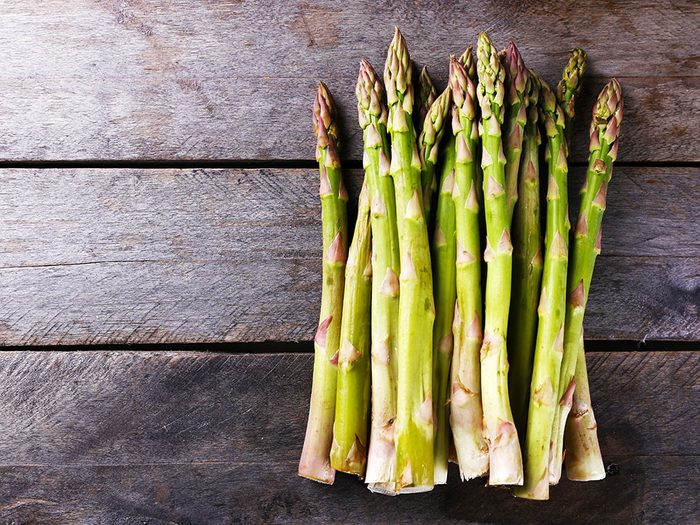
Asparagus for high blood pressure
Asparagus contains the natural diuretic asparagine, which helps your body get rid of excess fluid and salt. This is helpful for people with edema caused by high blood pressure. Plus, the B vitamins in asparagus can help fight cognitive decline and depression. If you have gout, though, keep your consumption to a minimum: Asparagus contains purines, which can precipitate painful attacks.
(Related: Foods That Help Lower High Blood Pressure)

Tea for infections
A chemical in tea, L-theanine, expands gamma delta T cells (immune blood cells that form the body’s first line of defense against all types of infections) by up to fiftyfold. Tea can, however, cut iron absorption by more than 80 percent when it is sipped with an iron-rich meal. Drinking your tea between meals or adding lemon minimizes that effect.
Related: Detox Foods That Work Even Better Than Apple Cider Vinegar
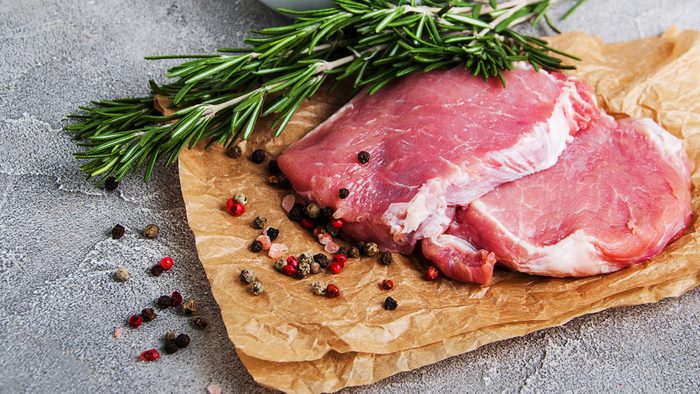
Pork for energy
Pork is a major source of thiamine, a B vitamin that is instrumental in the conversion of carbohydrates into energy for the body and brain. It’s also crucial for heart, muscle, and nervous system functions. And the zinc in pork helps boost the immune system, build protein, and heal wounds.
(Related: Simple Habits to Naturally Boost Your Immune System)
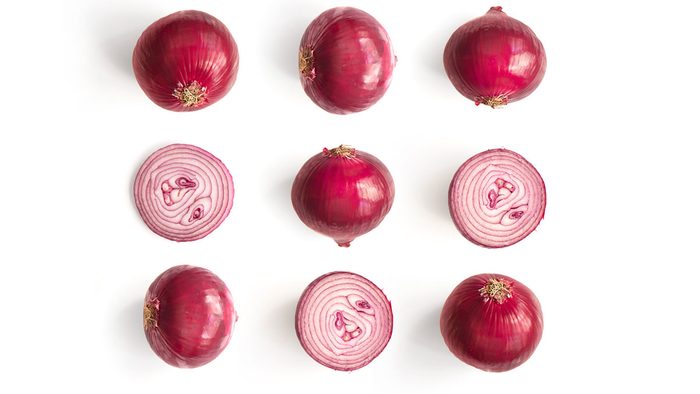
Onions for lung cancer
A Journal of the National Cancer Institute study reported on the significant correlation between a high intake of dietary flavonoids, such as those found in onions, and a reduced risk of lung cancer. Onions may also help boost your good (HDL) cholesterol.
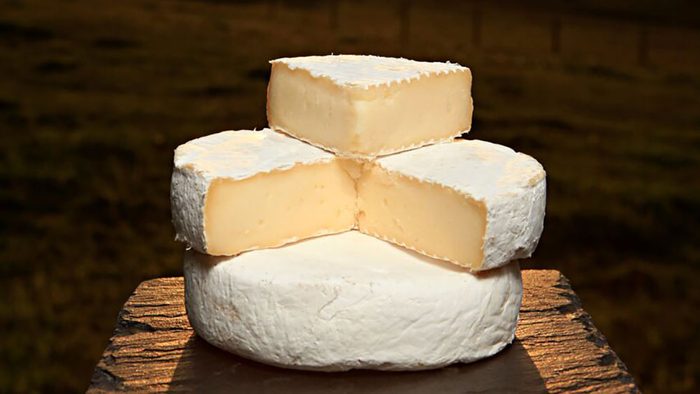
Cheese for dental health
The fat naturally contained in most cheeses coats your teeth and acts as a natural barrier against bacteria. Cheese also contains casein, a protein that provides natural tooth protection. But aged cheeses, such as blue cheese and Camembert, can trigger migraines in some people.
(Related: Is It Healthy to Eat Cheese Every Day?)
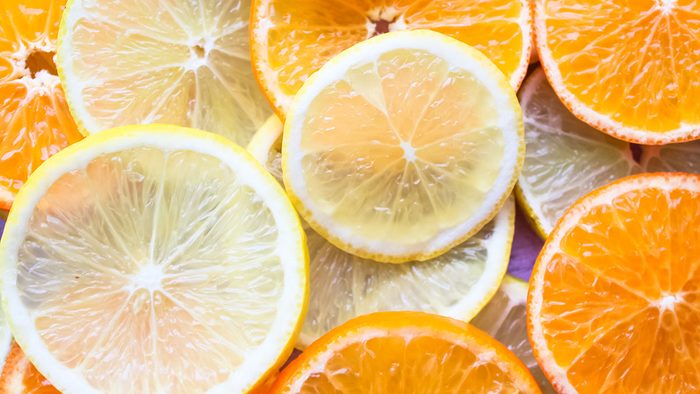
Lemons and limes for kidney stones
The citric acid in lemon and lime juices helps stave off some kinds of kidney stones by reducing the excretion of calcium in urine. Lemon rind is also rich in a compound called rutin, which can strengthen the walls of veins and capillaries, potentially reducing the pain and severity of varicose veins.
(Related: A Lemon-Herb Marinade to Give Your Protein Some Zest)
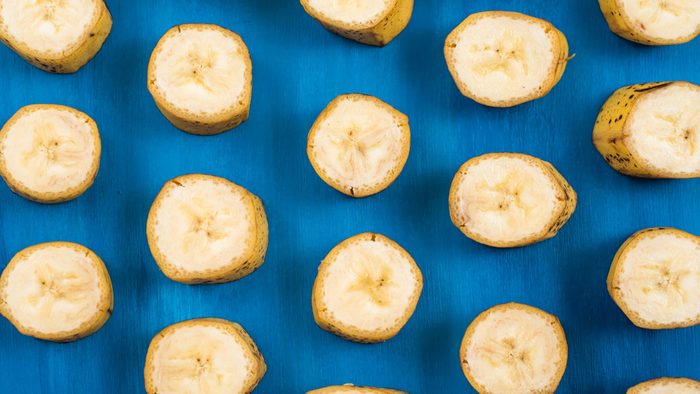
Bananas for depression and anxiety
A medium banana has 30 percent of the recommended daily intake of vitamin B6, which helps the brain produce mellowing serotonin. It also gives you tryptophan, which relieves depression and anxiety. One curious caution: Bananas (along with papayas and avocados, for that matter) can trigger an allergic reaction in people sensitive to latex.
(Related: Foods That Are Proven to Fight Depression)
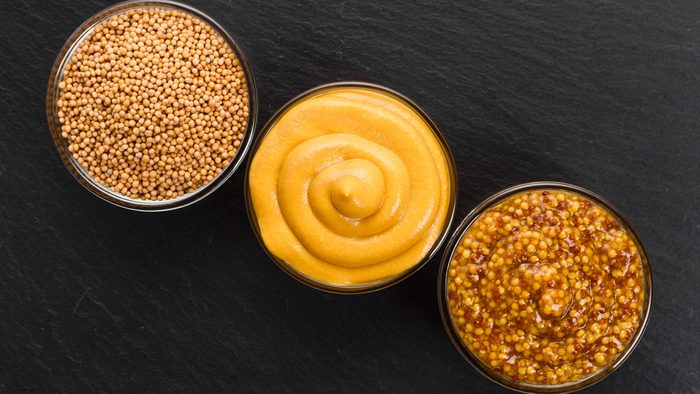
Mustard for good bones
Mustard contains manganese and phosphorus, which contribute to strong bones and teeth. Mustard also provides selenium, which may protect against cancer and heart disease, and magnesium, which helps reduce inflammation, blood pressure, and blood sugar.
(Related: Should You Try The Anti-Inflammation Diet?)
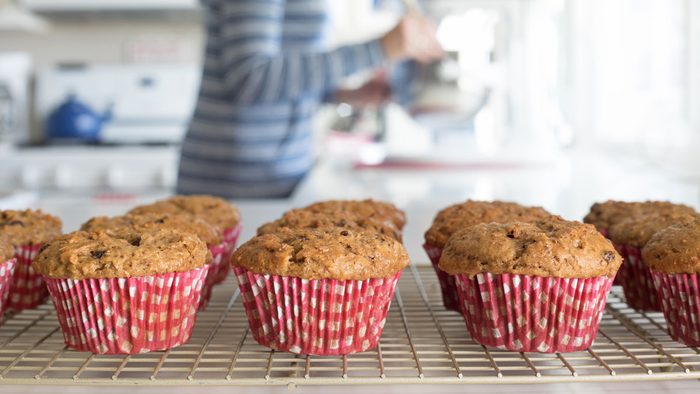
Bran for diverticulitis
Including wheat bran in a high-fibre diet can help prevent diverticulitis, an intestinal disorder in which small pockets bulging from the colon wall become infected or inflamed. However, the phytic acid in raw bran inhibits the body’s absorption of calcium, iron, zinc, and other important minerals.
(Related: Budget-Friendly Vegetables That Are a Great Source of Fibre)
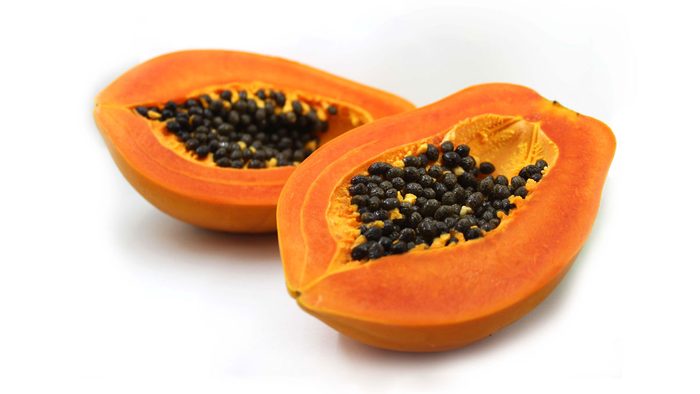
Papayas for arthritis
One medium-sized papaya provides more than twice the daily recommended dose of vitamin C, and a study of more than 20,000 people found that those who ate the lowest amounts of vitamin C–rich foods developed rheumatoid arthritis at more than three times the rate of those who consumed higher amounts.
(Related: Foods That Are High in Vitamin C)
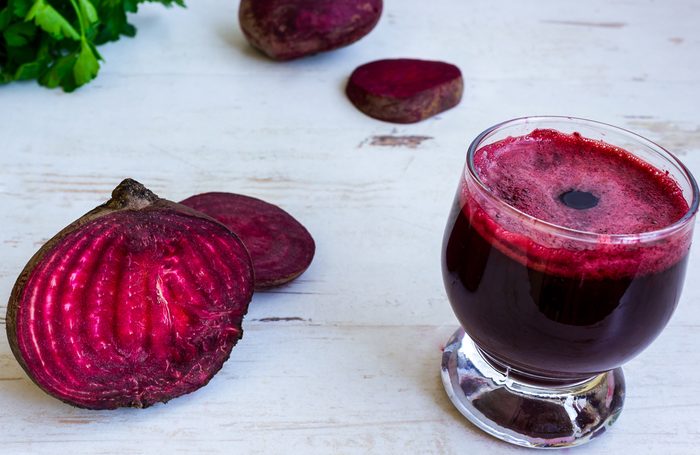
Beets for a better brain
Beets produce nitric oxide, which helps increase blood flow throughout your body and your brain, which in turn may help reduce the risk of developing Alzheimer’s and vascular dementia. But beet greens (the leafy tops) are high in oxalates, which can form small crystals and contribute to the formation of some kidney stones.
Related: This is Exactly What You Should Eat on Days You Exercise
